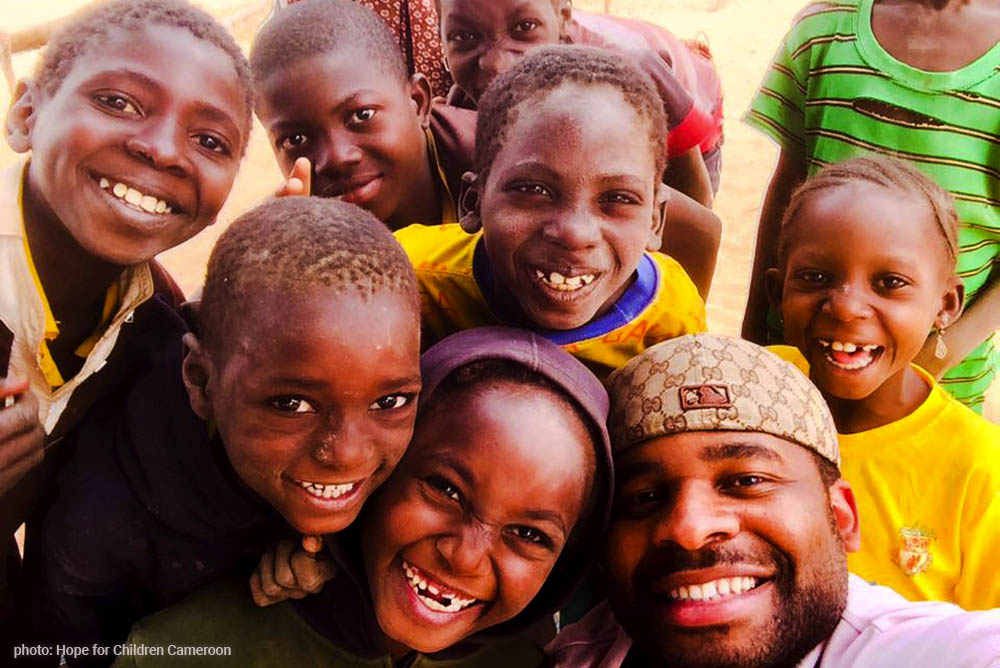I recently had the incredible opportunity to visit Niger, one of the 35 crisis-affected countries where 75 million children aged 3 to 18 years are in desperate need of educational support.
Niger faces a huge humanitarian crisis caused by food insecurity, malnutrition, population displacements, disease epidemics and natural disasters. The vast desertification of the region due to climate change and the large population of illiterate unemployed youth are also striking.
The terrorist acts of Boko Haram have displaced millions of people fleeing from insecurity in Nigeria and Niger. With terrorist groups trying to recruit young children through financial incentives, most parents are scared to send their children to school, depriving them of their education. Over 213,000 people live in refugee camps in the Diffa region in Niger while another 54,000 refugees from Mali are in Niger. This has increased the strain on already insufficient basic services for the people of Niger.
Niger’s high fertility rate, at 7.6 births per woman, has exacerbated the out-of-school crisis. With a population of around 20 million according to the 2014 census, Niger ranks 188 of 188 in the Human Development Index. Despite free primary education in the country, the female school enrollment rate remains low due to the prevalence and practice of child marriage in Niger. In fact, 3 out 4 girls in Niger are married before the age of 18. Over a third of girls in the country are married off before their 15th birthday.
As a Global Youth Ambassador for A World at School, I took educational materials to distribute during my trip to Niger. When I spoke to a large group of school children, all I could see were beautiful smiles despite the many challenges these kids face every day. Extreme poverty, discrimination against girls, insecurity, long physical distances between home and school, insufficient teachers, poor learning environments, and the poor perception of the value of education among parents are just some of the major challenges facing students and the educational system in Niger.
Visiting the remote villages of Dosso and Doutchi, I witnessed large numbers of street children begging who gathered at busy streets. Most of the out-of-school girls could be seen fetching water or cooking, while the boys accompanied grazing livestock. My stay in Niger made me appreciate what it means to live in peace – something most of us take for granted. In many conflict-affected countries today, children are either displaced from their homes or their families. Unfortunately, education often becomes the first thing that is neglected when children go through this kind of instability.
Due to lack of sufficient action from governments and world leaders to increase the effectiveness and scale of investments in education, the share of funding allocated for education in national budgets keeps declining in many countries despite growing needs. With a nearly 10 percent decline in international assistance to education – especially in humanitarian crisis situations – closing the financing gap for basic education is a huge challenge. This is especially the case when coupled with the insufficient allocation of available funds for education, which often does not reach the most marginalized children and young people.
However, there is renewed hope for children living in conflict areas. Earlier this year in May, former UK prime minister and United Nations Special Envoy for Global Education Gordon Brown joined UN Secretary-General Ban Ki-moon and other world leaders, researchers and policymakers to launch the Education Cannot Wait Fund, sending a resounding message that we as global citizens must act and act now. This education crisis fund is designed to transform the global education sector and includes measures to deliver education to millions of children in emergency situations.
If we fail to close the education gap between developed and developing countries, we risk not meeting the ambitious Sustainable Development Goals. Without strong political will and urgent action, more than 124 million children and youth will be denied access to an education and more than 250 million young people will not learn the necessary skills they need to lead healthy and successful. The Education Commission brings together the best evidence from around the world on what works in education and what it will take to expand and improve learning opportunities. Hopefully the work of the Commission will also inspire leaders at all levels and sectors to take action and invest in education for all.
Promoting and supporting education in fragile states is critically important. It helps encourage peace-building and conflict mitigation, fosters economic growth and poverty reduction, and can lead to increased well-being during and after humanitarian crises. It’s time for world leaders to invest in education, especially for those in conflict-affected regions who need it the most.
Joannes Paulus Yimbesalu is the Founder of Hope for Children Cameroon and A World at School Global Youth Ambassador.

